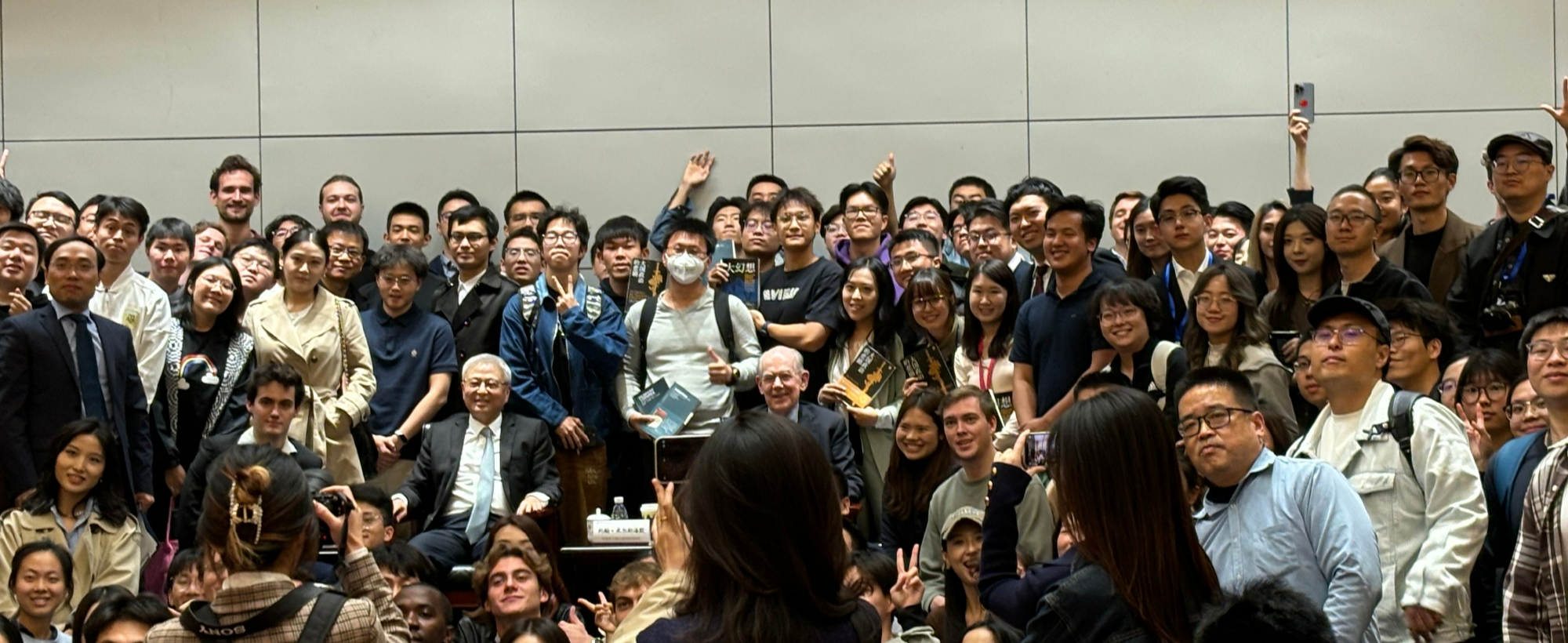Staunchly Anti-China American Scholar Warmly Welcomed in China

On October 11th at 3:30 p.m., American scholar John Mearsheimer gave a lecture at Tsinghua University in China. The hallways inside and outside the 400-person auditorium were filled with students—a stark contrast to his anti-China academic stance and the cool reception he has faced in American politics.
The question “How to evaluate Mearsheimer” on the Chinese Quora-type platform Zhihu has attracted millions of participants, including lengthy academic analyses. We have selected the following article from these discussions to help you understand the enthusiasm of the Chinese towards Professor Mearsheimer.
 Mearsheimer is signing autographs for his audiences
Mearsheimer is signing autographs for his audiences
Rather than evaluating Mearsheimer, let’s assess how the Chinese view him.
Chinese tend to be quite “transcendent.” By transcendent, I mean that in making value judgments, they tend to prioritize societal interests and idealistic shared values over personal gain.
For instance, Chinese can admire loyal subjects and filial children even if they are from an opposing side, or appreciate talented individuals from enemy ranks.
We thoroughly and naturally respect the premise of “each to their own” stance.
If you are an adversary who fights valiantly, employs wise strategies, and demonstrates loyalty to your homeland, even if you cause significant harm to us without resorting to despicable tactics contrary to basic human ethics, the Chinese populace will still admire you and offer full recognition.
For example, our admiration for Matthew Bunker Ridgway far exceeds that for Douglas MacArthur. Although Ridgway caused us much greater casualties than MacArthur and was far more cunning and resilient, this does not hinder us from recognizing him as an excellent and outstanding military figure.
This ethical instinct has been cultivated over millennia from the position of “ruler of the world.” (Throughout the historical transitions of past dynasties in China, people came to realize that true and enduring governance of a nation does not come from eliminating all enemies, but from winning over all individuals, turning foes into friends, gaining their acceptance of your rule, and inspiring them to strive for your country. As a monarch, one must possess a magnanimous spirit, embracing all, and be conscious of the responsibility of ruling over the realm.) The instinct has a significant advantage—it greatly facilitates compromise and reconciliation of conflicts, especially aiding in the swift absorption of elite individuals from defeated adversaries.
If the enemy fights bravely and skillfully on the battlefield, employing cunning strategies that momentarily leave us helpless, causing us to suffer defeat, we will not mock or gloat over them when we finally overcome and capture them. Instead, we will show respect, admiration, and hospitality towards the enemy, even offering higher rewards to entice them to join us. If the enemy refrains from using inhumane tactics or weapons and can stand formidable in battle against us, we will only commend their abilities and inquire about their background.
We advocate, understand, and respect individuals who dedicate themselves wholeheartedly to their homeland and group’s interests.
Even if we use a stratagem of sowing distrust or discord among one’s enemies, when we witness loyalists and heroes being dragged to the execution grounds by a foolish ruler who is falling prey to our scheme, we will curse the ruler on their behalf.
This mentality stems from a winner’s mindset because we inherently consider ourselves winners, have always been winners, and will forever be the ultimate winners. Hence, we do not dwell excessively on specific victories or losses but rather reserve ample energy to appreciate this sportsman spirit.
Consequently, after each anticipated victory, yesterday’s foes locked in deadly combat with us can swiftly transition from adversaries to comrades, sharing drinks and merriment. We become curious about their tactics and troop strength, eager to learn from their experiences.
This unwavering superstition based on experience over thousands of years leads us to honor figures like Mearsheimer, who amidst relentless criticism, dare to uphold facts, even if their stance advocates resolute U.S. intervention in the Taiwan Strait.
This is the Chinese national character; the truly remarkable aspect isn’t Mearsheimer himself but this noble—perhaps excessively secure—transcendent spirit.
If there is truly hope for global peace among humanity, it should be easily proven mathematically — the ultimate architect of order must possess this profound and transcendent mindset ingrained to the core.
Guided by this mindset, those above will not necessarily resort to eradicating the vanquished out of fear post-defeat, but can sincerely welcome the remnants of the defeated into the new order after a conflict.
This mentality is the true essence of Tianxia and serves as the genuine nemesis of racial supremacism.
Editor: Leo Cai
https://www.zhihu.com/question/431020666/answer/7969854498?utm_psn=1830661149839998977



